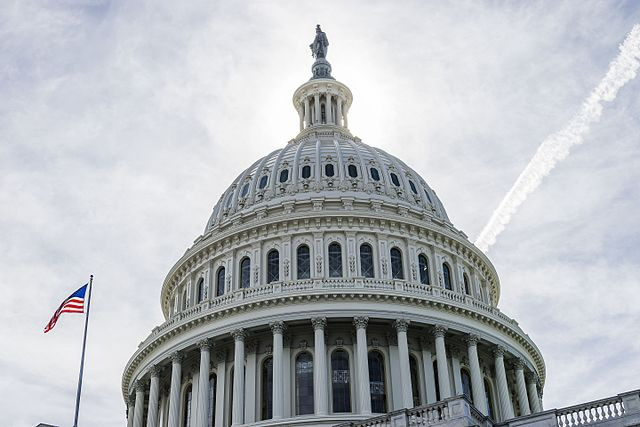Congressional leaders have unveiled a $1.1 trillion bipartisan spending measure for defense, homeland security, and other programs, giving lawmakers less than two days to avert a partial government shutdown. The Republican-controlled House of Representatives is set to vote on the sprawling package on Friday, leaving the Democratic-majority Senate with only hours to pass the six-bill package that covers approximately two-thirds of the $1.66 trillion in discretionary government spending for the fiscal year that began on October 1.
Senate negotiators Patty Murray, a Democrat, and Susan Collins, a Republican, emphasized the bipartisan and bicameral compromise represented by the final six bills, stating that they "will invest in the American people, build a stronger economy, help keep our communities safe, and strengthen our national security and global leadership."
The compressed schedule has raised concerns about the possibility of a brief partial shutdown after the Friday midnight deadline, unless Senate Majority Leader Chuck Schumer can reach an agreement with Senate Republicans to expedite the bill's passage. Schumer expressed hope that Congress can avert a shutdown if Democrats and Republicans in the Senate work together.
House Speaker Mike Johnson highlighted what he called a series of wins for Republicans in the legislation, including higher spending for US defense and border security, as well as a cutoff of US funding for the main United Nations relief agency that provides humanitarian assistance to Palestinians in Gaza. "This FY24 appropriations legislation is a serious commitment to strengthening our national defense by moving the Pentagon toward a focus on its core mission," Johnson stated.
Democrats, on the other hand, touted their success in blocking some Republican cuts and policy measures, while emphasizing funds aimed at lowering childcare costs, supporting small businesses, and combating the flow of the opioid fentanyl. "We defeated outlandish cuts that would have been a gut punch for American families and our economy - and we fought off scores of extreme policies that would have restricted Americans' fundamental freedoms, hurt consumers while giving giant corporations an unfair advantage, and turned back the clock on historic climate action," said Murray, the Democratic chair of the Senate appropriations committee.
The Congressional Budget Office has warned that US deficits and debt will grow considerably over the next 30 years, forecasting that the nation's $34.5 trillion national debt, which now represents about 99% of GDP, could rise to 166% of GDP by 2054.
The text of the spending package, unveiled on Thursday, fills in the details of an agreement in principle between Johnson and Schumer, which President Joe Biden has pledged to sign into law. With a slim 219-213 House Republican majority, Johnson will have to rely on Democratic votes to get the spending bill to the Senate. Many House Republicans are still expected to oppose the legislation, including hardliners who want steeper spending cuts.
The bill provides funding for various agencies, including the departments of homeland security, defense, state, and the Internal Revenue Service, as it prepares for the April 15 taxpayer filing deadline. The package also includes $19.6 billion for Customs and Border Protection, a $3.2 billion increase above fiscal year 2023, and $495 million for additional Border Patrol agents, which the Biden administration has repeatedly called for. However, it does not add funding for the border wall.
Furthermore, the legislation provides almost $90 billion in discretionary funding to the Department of Homeland Security, bolstering funding for additional resources, and funds 41,500 detention beds, which is more than the previous fiscal year and Biden's request, according to the GOP summary. The bill also increases Department of Defense funding, providing $824.3 billion, an increase of $26.8 billion above fiscal year 2023.






